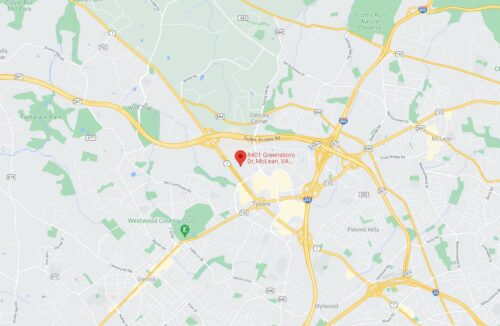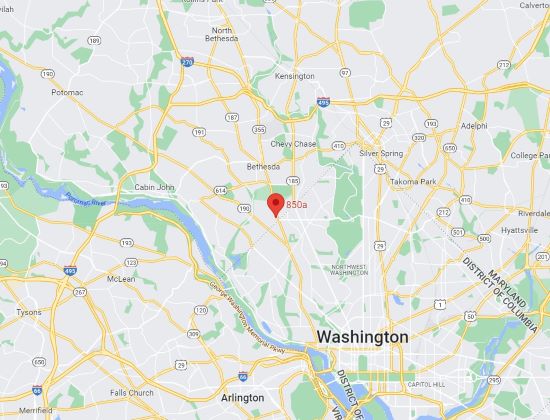Keratoconus is a condition in which the normally round cornea bulges outward, causing a more conical shape. This is the result of thinning corneas affected by the normal pressure within the eyes. The distortion of the corneal shape can lead to blurry vision and light sensitivity. If untreated, keratoconus can lead to scarred corneas. Dr. Andrew E. Holzman has many options to treating the condition, including corneal cross-linking (CXL), an FDA-approved non-surgical treatment for keratoconus.
The team at our Washington, DC eye care center would like to answer some of the most frequently asked questions about CXL. If your question or questions aren’t covered in the FAQ below, we’ll be more than happy to answer them for you during a consultation.
What Is Corneal Cross-linking?
Corneal cross-linking is a non-surgical treatment for keratoconus. Using a specially formulated vitamin solution and a safe ultraviolet (UV) system, we can strengthen the connective tissue of the corneas.
While CXL cannot cure keratoconus, it can prevent further conical bulging and reduce your rate of vision loss. It is an FDA approved treatment.
What Happens During the Corneal Cross-liking Procedure?
During corneal cross-linking, anesthetic eye drops are first applied to prevent discomfort. We then administer riboflavin (vitamin B12) eyedrops directly into your eyes. Patients will then have a safe UV light directed at their eyes for up to 30 minutes. The UV light activates the properties of the riboflavin, strengthening the collagen bonds in the cornea and preventing further outward bulging in the process.
For many patients, the CXL procedure will involve removal of the epithelium, the topmost layer of the cornea. This allows the vitamins to penetrate the corneas better.
What Are the Benefits of Corneal Cross-linking?
Corneal cross-linking helps reduce future vision loss by strengthening the cornea itself. By preventing further bulging of the cornea, patients may be able to comfortably wear contact lenses without losing any further vision quality, and in some cases, improved vision quality.
CXL can prevent the need for corneal transplant later in life. Since patients avoid the need for invasive therapies to address their keratoconus, this means less downtime and better management of their vision.
Who Is a Good Candidate for Corneal Cross-linking?
Good candidates for corneal cross-linking are people who have been diagnosed with progressive keratoconus and are least 14 years of age.
During a consultation at our Washington, DC vision center, we can assess your suitability for CXL and recommend alternatives as needed.
IT IS POSSIBLE THAT WE CAN ACTUALLY IMPROVE YOUR VISION WITH A PARTIAL PRK TREATMENT AT THE SAME TIME WE DO CXL OR AT A DIFFERENT VISIT FOLLOWING CXL. This is part of our special Athens Protocol treatment for Keratoconus and we can evaluate you for this very exciting treatment at our DC area centers.
How Effective Is Corneal Cross-linking?
According to the American Academy of Ophthalmology (AAO), corneal cross-linking has long-term medical benefits for patients with keratoconus. After tracing results in patients for 5 to 7 years, researchers found no progression of keratocouns, stable conceal thickness, and no evidence of corneal scarring.
Further long-term studies must be conducted, but the research so far has been promising.
Does Insurance Cover Corneal Cross-linking?
This varies based on insurance providers and your policy. Some insurance providers will partially cover corneal cross-linking procedures, but patients must check about their eligibility for coverage.
That said, our practice offers payment plans and financing options if the cost of CXL is too much of a burden for a household or individual.
How Can I Lean More About Corneal Cross-linking?
For more information about CXL and your many options for improving the health of your eyes and overall wellness, be sure to contact our advanced eye care and vision team. Dr. Andrew E. Holzman and his team in the Washington, DC area can be reached by phone at (703) 552-5221.




